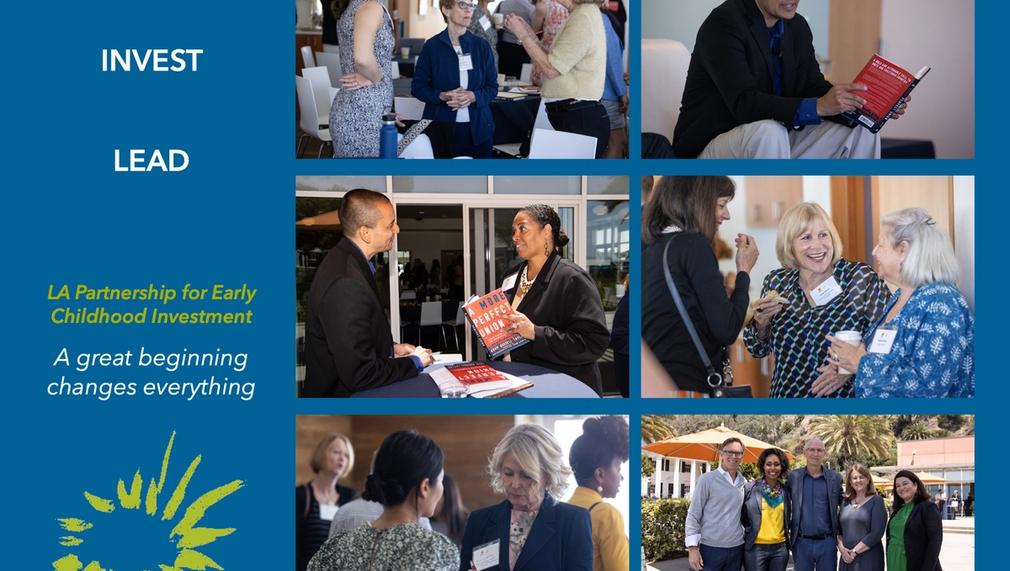Housing families with young children
Families with young children who are homeless or housing insecure are an all-too frequently overlooked group impacted by Los Angeles' greatest community crisis. We are bringing together, for the first time, homelessness and early childhood nonprofits to identify and act on concrete solutions to their challenges and to raise their issues to elected leaders, influencers and the public.

What is the primary issue area that your application will impact?
Affordable housing and homelessness
In what stage of innovation is this project, program, or initiative?
Pilot or new project, program, or initiative (testing or implementing a new idea)
What is your understanding of the issue that you are seeking to address?
Housing and homelessness have been and remain Los Angeles' greatest public crisis. The roots go back decades even if they have worsened in the past 15 years. Among those dealing with these challenges, families with young children often are overlooked. Of the roughly 75,000 unhoused individuals in the county in 2023 about 15,000 were members of a family, a number that understates the truth.
Like others, families are affected by the lack of affordable housing in Southern California. The impact of the country’s history of racist policies have left people of color more likely to be renters, have low incomes and face housing hardship. Adding to the difficulty for families are unique challenges. Most transitional housing is designed for individuals. Housing vouchers do not cover the costs of large enough housing large enough. There is no centralized resource to help families. At best, the system that exists is fragmented, difficult to navigate, and in some communities, not visible at all.
Describe the project, program, or initiative this grant will support to address the issue.
The LA Partnership -- working with the county's Center for Strategic Partnerships and Watson Consulting Group -- is bringing together for the first time the county's leading homeless service providers and early childhood advocates to co-create answers to the specific challenges families with young children that are housing insecure face. Providing them the time and space they normally do not have to discuss the issues deeply and openly -- conversations led by expert moderators from Watson Consulting -- will encourage their creativity and expertise to combine, and from that combination we expect innovative, actionable solutions to arise.
We plan to convene the full group from roughly 20 public, private and community-based organizations quarterly, with working groups dedicated to specific topics meeting more frequently. Our budget includes modest stipends for their time, and our group has met twice in 2024. While open discussion is one goal and progress marker, our focus in on solutions, and so we are raising money for an "Action Fund" that will cover the costs of implementing the solutions the group generates. This effort has been designed to be community-driven. We are creating the space for this much-needed work, while the leaders from these deeply rooted groups have the agency to determine which solutions will have the greatest impact.
Describe how Los Angeles County will be different if your work is successful.
Realistically, we know the county's housing crisis cannot be alleviated overnight, and so we hope to address one overlooked aspect of it -- the challenges facing families with young children -- while providing a replicable model for assisting others experiencing with homelessness.
But we also believe everyone deserves safe housing and that the pressures that frequently lead people to be unhoused -- job loss, mental health issues -- should not be the breaking point that leaves them living on the streets or "couch surfing" with family and friends. Being unemployed, having mental health challenges and being poor are not crimes, but the impacts that accompany homelessness too often effectively make them into crimes. When our project is successful, and solutions to the housing challenges family face are being addressed, LA County will be a more equitable, just place for everyone to live -- and place where all families can thrive.
What evidence do you have that this project, program, or initiative is or will be successful, and how will you define and measure success?
As an early-stage project with our group just starting to meet, we expect our plans to define and measure success will include two central elements:
1. Group effectiveness. We already have begun to survey group members to determine how well the group is operating; what improvements can be made to facilitate open discussion; what structures and procedures will be most effective; and other questions related to the process and organization of this initiative.
2. The number of families with young children that find transitional and permanent housing. Working with group members, we will collect data on how many families we reach and how may find permanent homes.
As our group is still identifying the issues it wants to address, these measurements could change given their focus.
Describe the role of collaborating organizations on this project.
The Center for Strategic Partnership is assisting in organizing the convenings of the group and acting as the connector to other housing efforts happening in the county. Watson Consulting Group is acting as the facilitator for the group meetings and meetings of the working groups.
Approximately how many people will be impacted by this project, program, or initiative?
Direct Impact: 30.0
Indirect Impact: 2,000.0